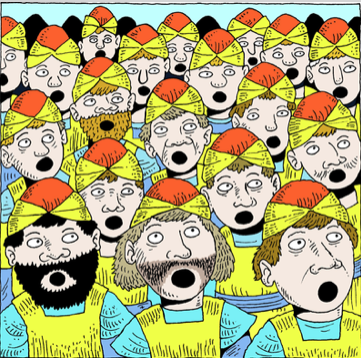JJabez, an influential figure from the Tribe of Judah, is mentioned only a handful of times in the scriptures. Despite this, his impact is undeniable, and his story resonates with contemporary relevance. His tale offers incredible lessons that echo through time, much like the importance of understanding the “click here” moments in our lives or the need to cancel timeshares that no longer serve us.

A place was named after Jabez as mentioned in 1stChronicles 2:55. Let’s take a deeper look at this important historical figure without any further ado:
Contents
Where does the name ‘Jabez’ originate from?
Jabez got his name from his mother after she had a difficult birth. The name is pronounced (or written) as Yabiz or Yabis. For a period of time, Jabez carried the tag of pain over him, but after becoming his own man and preaching about the love of God, he managed to completely change the perception of people towards him.
How did Jabez’s life contradict with his name?
As mentioned earlier, Jabez got his name from his mother after her troublesome birth. So, it wasn’t that difficult for many to associate him with pain as his name said it all. But as Jabez grew up, he chose to live an exemplary life that drew God’s favor upon his life. He was seen as the more favorable one amongst his peers and as a result, he was loved by his tribe.
Even though his name depicted sorrow, Jabez led a life that was filled with everything but sorrow. He even wrote an entire prayer against contracting sorrow – a prayer that’s still famous to this very day. Jabez also went ahead and built a school for the Levites and continued to impact his teachings (as I’ve dived into in detail below).
The biblical figure managed to stay away from sorrow by simply casting his earthly burdens unto the God of Israel. He world cry out to the Lord and tell Him to bless him and enlarge his territory whilst protecting him from his enemies. And since the Lord God answered Jabez’s prayer, he was able to live a full life away from pain.
In summary, those who suffer because of pain and sorrow are the ones who try to tackle their problems themselves. But Jabez clearly showed fellow Israelites of the importance of not relying on themselves but to God. Jabez also asks God to give him strength to do His bidding.
Was Jabez cursed?
Many seem a bit confused when it comes to the story of Jabez. The latter confusion comes as a result of the origins of Jabez’s name and not his life. As I mentioned earlier, Jabez’s mother had an extremely difficult child birth. And since the whole process of giving birth gave her pain and sorrow, she chose the name Jabez for her son, not as a curse, but as a reminder of what she went through to bring him to the world.
If you go to 1stChronicles 4:9, you’ll realize that Jabez was an honorable man – more honorable than his brothers (peers) thus attracting God’s favor. Simply put, by naming her son Jabez, the mother only acknowledged the curse that was bestowed upon all women who came after Eve (the first woman) after she ate the forbidden fruit.
Therefore, Jabez was not cursed – not by God and most certainly not by his mother. The latter explains why he grew up to live an exemplary life filled with nothing but God’s favor – a life that many Christians today strive to emulate centuries after Jabez’s passing.
Was Jabez a prophet?
Contrary to popular belief, Jabez wasn’t a prophet. Neither was he a political figure as some presume. He was just a man whose faith in God was so strong that he was quoted a few times in the book of chronicles. Jabez is also implied to be the ancestor of the Kings of Judah, though not directly.
Growing up, many thought Jabez to be more honorable than his brothers, and that’s what resulted to him having God’s favor. As a result, he was more respected, more accomplished, and most importantly, more famous than his peers.
Even though Jabez is only mentioned a handful of times, his work stretches beyond what’s been recorded in the scriptures. For instance, Jabez is accredited with the establishment of a religious institution for the children of Zipporah. For those who may not know, the children of Zipporah were later came to be known as the Levites.
The Targumim also went ahead to state that Jabez’s institution has a total of 31 disciples when it was at its peak. These disciples were also known as Tirathim because their voices sounded like trumpets every time they sung out hymns. These disciples of Jabez were known by other names too.

For instance, they were sometimes referred to as Suchathim because they walked in the shadow of the spirit of prophecy and Shimaathim because they lifted their faces to hear.